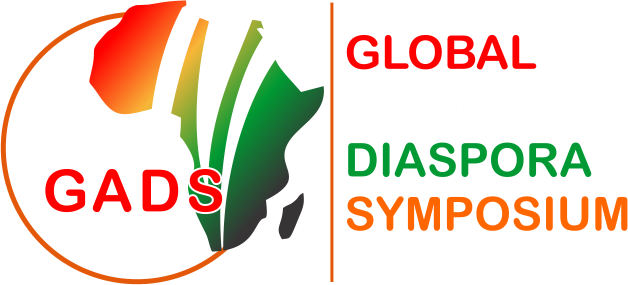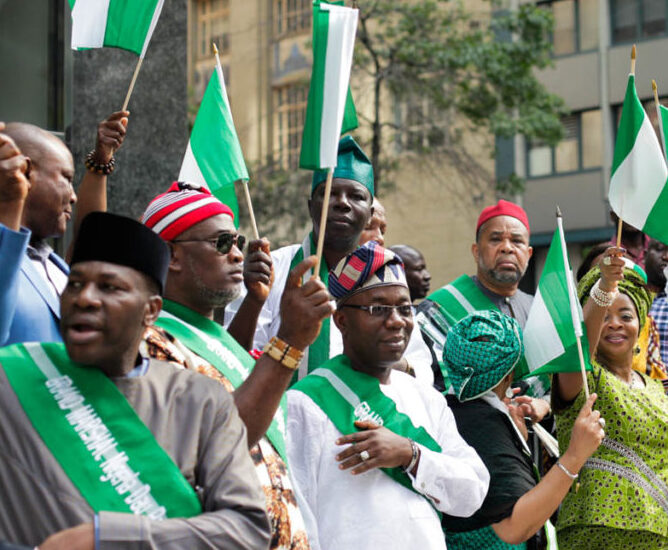Migration has become a defining feature of the 21st century as the world is becoming increasingly interconnected. The movement of people across borders has created communities of people who live outside their countries of origin, known as diaspora. These diasporas represent a diverse group of people, who maintain strong ties with their homelands, cultures, and identities.
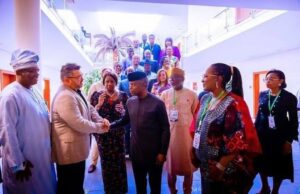
As such, engaging these Diaspora communities can play a vital role in shaping the development of their countries of origin. These engagements often referred to as diaspora engagement create avenues for the Diaspora to participate in the sustainable development of their homelands, through financial, social, and political means.
Globally, the Diaspora has become a force to be reckoned with in the sustainable development of their varied homelands. These engagements are powerful tools that create a platform to tap into the knowledge, skills, and resources of the diaspora to support the economic growth and social progress of their countries of origin.
In Africa, diaspora engagement has been identified as a critical factor in sustainable development. With over 30 million Africans living outside the continent, the African diaspora represents a vast network of potential partners for development. While their remittances play a crucial role in sustaining livelihoods and social services, the diaspora also has the capacity to contribute to development initiatives through their expertise, networks, and social capital.
The African Union’s designation of the African Diaspora as the 6th Region of the African Continent in Article 3q of the Protocol on Amendment to the Constitutive Act of the African Union 2003 therefore expressly invites the African Diaspora to participate as an important part of building the Union.
With the continent facing underdevelopment with numerous challenges such as poverty and conflict, engaging with the diaspora communities in development initiatives is necessary to help bridge critical gaps. Through these engagements, knowledge transfer and innovation, new ideas and perspectives to local contexts, promotion of cultural exchange, and mutual understanding between diaspora communities and their homelands are established. These exchanges bring about new connections for stronger global African Diaspora partnerships, strategic alliances, and proffering of solutions to Africa’s pressing issues.
To ensure the success of these engagements, several strategies need to be implemented, which include; building trust and partnerships, promoting diaspora leadership, and investing in capacity building and knowledge sharing.
Firstly, building trust and partnerships is essential to fostering effective engagement between members of the diaspora and local actors in Africa. This has been initiated through ongoing dialogue, building personal relationships, and prioritizing transparency and accountability in development initiatives. The culture of collaboration, mutual respect, and shared responsibility for sustainable development efforts has been prioritized. This can be seen through numerous initiatives of the Federal Government of Nigeria including the Nigerian Diaspora Investment Trust Fund (NDITF), which is a private sector-driven initiative led by the Diaspora to ensure accountability and transparency of Diaspora Investments channeled towards socio-economic development.
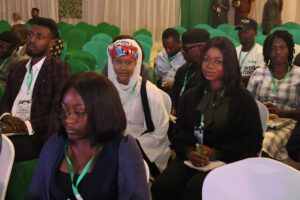
Secondly, promoting diaspora leadership is critical to ensuring that members of the African diaspora have a central role in shaping sustainable development initiatives in Africa. Diaspora-led organizations and networks are being supported to lead and implement development projects in partnership with local actors, rather than being relegated to a secondary role. This approach can help to ensure that the perspectives, experiences, and expertise of the diaspora are fully harnessed to drive sustainable development efforts in Africa.This can be seen in the Ghanaian Diaspora Homecoming Summit, an annual event that brings together members of the Ghanaian Diaspora to engage in development discussions and connect with local stakeholders, including Government officials, business leaders, and civil society actors to share ideas, experiences, and best practices.
Thirdly, investing in capacity building and knowledge sharing is critical to ensuring that members of the African diaspora have the skills, knowledge, and resources they need to contribute effectively to sustainable development efforts in Africa. Capacity-building efforts focus on areas such as project management, fundraising, and leadership development, as well as understanding the local context and cultural norms in Africa and knowledge-sharing promotion through platforms such as conferences, workshops, and online forums, where members of the diaspora can exchange ideas and best practices with local actors. The establishment of the Somaliland Development Fund (SDF), a multi-donor fund that supports sustainable development in Somaliland, is an example. It emphasizes capacity building and knowledge sharing between the Diaspora and local actors, while also providing support for diaspora-led initiatives.
Lastly, creating an enabling policy environment that recognizes the role of the African diaspora in sustainable development in Africa is gaining traction. Governments, development organizations, and civil society actors should do more to develop policies that support diaspora engagement, including the creation of diaspora-focused initiatives, streamlined investment procedures, and support for diaspora-led organizations and networks. In this regard is the Federal Government of Nigeria’s ratification of the National Diaspora Policy. This policy has a holistic approach that aims to provide a comprehensive and supporting framework for facilitating Diaspora engagement in national development, empowering the Diaspora to contribute effectively, and maximizing the value of Diaspora contributions to Nigeria’s development. In addition to this, for the past 16 years, July 25th has been set aside as the annual Nigeria Diaspora Day, to celebrate the contributions of the Nigerian Diaspora to national development.
Also, Diaspora Voting has been on the front burner of national issues in Nigeria and a Bill has been presented to the National Assembly to adopt Diaspora Voting so as to enable the Diaspora to participate in electing leaders that will govern the affairs of their homeland. Other African countries such as Kenya and South Africa among others, already undertake Diaspora voting.
The Diaspora has also played a crucial role in Rwanda’s post-genocide reconstruction and development efforts, especially through the Rwanda Diaspora Global Network (RDGN), which connects Rwandan diaspora members with each other and with development initiatives in Rwanda. The RDGN has facilitated investments in key sectors such as health, education, and infrastructure, with diaspora members contributing to the construction of hospitals, schools, and roads, thereby improving access to essential services in Rwanda.
In Zimbabwe, the Diaspora has been instrumental in supporting local communities affected by economic and political instability. One successful diaspora engagement initiative is the Zimbabwe Network of Diaspora Organizations (ZIMNOD), which provides a platform for diaspora members to coordinate and support development initiatives in Zimbabwe.
Regardless of the region, Diaspora Engagement has demonstrated the potential of the African Diaspora in contributing to sustainable development in Africa and the above strategies have proven effective. Over the years, members of the African diaspora are increasingly mobilizing resources and networks to support development initiatives in Africa. Many diaspora organizations and networks are working to address issues such as healthcare, education, gender equality, and environmental sustainability.
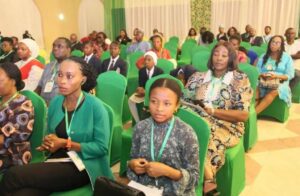
African Diaspora is a complex and multifaceted phenomenon that encompasses a wide range of experiences, from the forced migration of enslaved Africans (Historic African Diaspora) to the voluntary migration of African professionals seeking better opportunities abroad. In fact, beyond Africa, the impact of the Global African Diaspora on the cultural, social, and political landscape of the world is really significant. Africans, and specifically Nigerians, I’m certain, can be found in every part of the world. This continues to shape the lives and identities of the globe as the world becomes more interdependent, with many Africans blazing the trail and taking up the stage in the global atmosphere.
Ceremonial traditions for honoring the Diaspora have since taken the global stage, as witnessed in India during the Pravasi Bhartiya Divas (PBD), a biennial event marked on 9th January, aimed at celebrating their Diaspora and symbolizing Mahatma Ghandi’s return to India from South Africa. On this day in 1915, Ghandhi’s return to India played a significant role in the freedom of Indians.
Over the past ten years, there has been a significant change in the Africa Union (AU) and African governments’ perception of the African Diaspora. In the previous three decades, Diaspora was not manifestly viewed as a resource that countries of origin could tap into for their development needs. This is no longer the case as the African Diaspora now plays a very important role in the economic development of their home countries.
To this effect, the Global African Diaspora Symposium Abuja, 2023 (GADS) Abuja 2023) is being organized by the Nigerians in Diaspora Commission (NiDCOM) and the Directorate of Technical Cooperation in Africa (DTCA), both in the Ministry of Foreign Affairs of the Federal Republic of Nigeria, and charged with Diaspora engagement for development, with nationwide and continent-wide mandates respectively in conjunction with the African Diaspora Alliance (AfDA) and the Organization of African, Caribbean and Pacific States (OACPS).
This Symposium seeks to foster new connections for a stronger Global African Diaspora partnership. It also presents an opportunity to initiate an in-depth dialogue with various stakeholders, from representatives of the Diaspora in the world (associations and individuals) as well as development practitioners and the donor community, to Heads of State and Governments, and make it possible to identify the main thrust of policies and speed up implementation for the benefit of Africa.
The Global African Diaspora Symposium (GADS) Abuja 2023 is set to hold in Abuja, Nigeria, as well as virtually, on 27th – 28th April, 2023.

